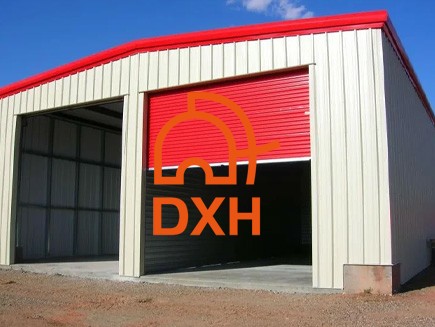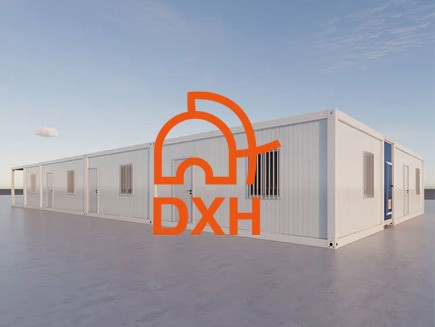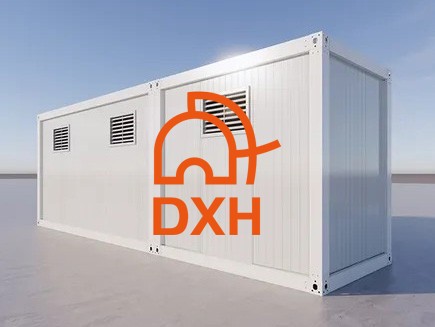For businesses, the decision between traditional warehouses and container warehouses can influence operational efficiency and cost management. While both options are designed for storage goods, they cater to distinct needs and come with their respective advantages and disadvantages. This blog will provide a comparison of traditional warehouses and container storage solutions, focusing on critical factors such as cost, scalability, and sustainability. Our goal is to help you identify the warehousing option that aligns best with your operational requirements and budget.

What is a Traditional Warehouse?
Traditional warehouses are permanent structures used to store goods, equipment, or inventory. Typically constructed from bricks, concrete, or steel, they are often situated in industrial zones. These facilities are designed for large-scale storage demands, with many featuring infrastructure such as climate control systems, loading docks, and inventory management systems.
Advantages of Traditional Warehousing
- Large Storage Space: The warehouses provide extensive floor space, ideal for businesses with substantial inventory volumes.
- Well-equipped Infrastructure: With loading docks, power systems, and often security measures, they streamline logistics processes.
- Climate Control: Many warehouses offer climate-controlled systems, crucial for storing sensitive items, such as electronics, pharmaceuticals, and certain food products.
Disadvantages of Traditional Warehousing
- High Costs: Leasing or owning a warehouse incurs significant expenditures, including rent, utilities, and maintenance fees.
- Limited Flexibility: Traditional warehouse leases are primarily long-term and fixed, making it challenging to adjust storage space based on business growth or changes in demand.
- Fixed Location: If your business needs to change locations or requires storage near a specific project site, the fixed nature of a traditional warehouse can be a drawback.

What is Container Warehouse?
Container storage, also known as container warehousing, involves using portable, modular shipping containers to store goods. Originally crafted for transportation, these containers have been reused as secure and adaptable storage solutions. Container storage is growing in popularity among companies seeking cost-effective and scalable warehousing options.
Pros of Container Warehouse
- Cost-effective: Container storage solutions tend to be more affordable than traditional warehouses, allowing you to rent or buy a container for a fraction of the cost of a long-term lease.
- Scalability: The modular feature of containers makes it easy to expand storage capacity. Container storage areas can expand as your business grows, making this "pay as you go" solution suitable for companies with seasonal inventory fluctuations.
- Portability: Container warehouses can be conveniently delivered right to your business, construction site, or any other location, enabling immediate use. This on-site storage option can help reduce construction and labor expenses.
- Enhanced Security: The containers are constructed from high-strength weathering steel, ensuring both durability and robust protection. They are designed to endure bad environmental conditions while offering intrinsic security against theft and pests.
- Versatile Usage: Beyond simple storage, containers can be modified for various purposes. Increasingly, companies are using them as mobile offices, pop-up retail shops, workshops, and even temporary housing.
Cons of Storage Containers
- Limited Space: A standard container offers fixed and compact space, which may not suit businesses with large inventories. However, the modular containers allow for stacking multiple units to create flexible storage solutions.
- Climate Control: The container utilizes insulation materials to maintain stable temperatures. For temperature-sensitive items, consider enhancing the insulation thickness or installing climate control systems.
- Zoning and Permits: Locating containers at your business or residence is subject to local zoning laws and may require permits. Always check with local authorities in advance.
Container Storage Solutions in Action
- Retail Stores: Retail pop-up stores can use containers to house seasonal inventory, items for events, and extra stock, highlighting a cost-effective storage strategy.
- Construction Company: Its mobility and flexibility for reuse as the construction company evolves represent a sustainable storage solution. It can be utilized to store tools, equipment, and materials at the construction site while remaining safe and convenient to access.
- E-commerce: Users running online stores can utilize container warehouses as nearby storage centers. This provides a cost-effective and scalable distribution center.
- Agricultural Storage: Farmers use containers to store feed, tools, and harvested crops, safeguarding them from natural disasters and pests.

Conclusion: Which Solution is Better for Your Business?
Choosing between traditional and container warehouses hinges on your business's requirements. Traditional warehouses are well-suited for large-scale, long-term storage needs. On the other hand, container storage is a practical solution for companies that value cost-effectiveness, flexibility, and sustainability.
By understanding the advantages and limitations of each option, you can select a storage solution that aligns with your operational goals. Whether you opt for a container warehouse or traditional warehousing, ensure it can support your business's growth and efficiency.
Ready to explore container storage? Contact DXH House today to discover a cost-effective storage solution that meets your needs.


